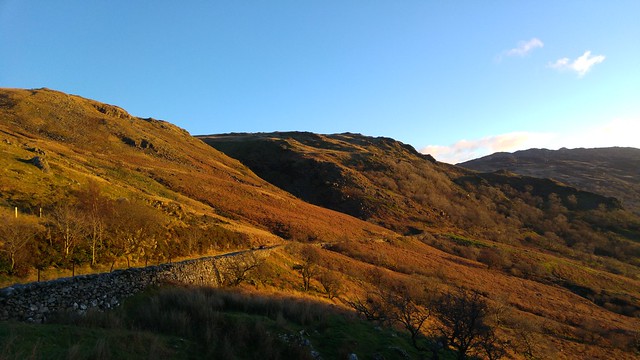Podcast: Play in new window | Download
In this adventure we’re uncovering the origins of the word bone.
A bone is:
- A composite material consisting largely of calcium phosphate and collagen and making up the skeleton of most vertebrates.
- Any of the components of an endoskeleton, made of bone.
It comes from Middle English bon (bone), from Old English bān [bɑːn] (bone, ivory), from Proto-Germanic bainą [ˈbɑi̯.nɑ̃] (leg, bone), from *bainaz [ˈbɑi̯.nɑz] (straight), from PIE *bʰeyh₂- (to hit, strike, hew, cut) [source].
Words from the same roots include been (leg, limb, side) in Dutch, Bein (leg) in German, ben (leg, bone, sinecure) in Danish, bít (to beat, fight) in Czech, and buain (harvest, reap, cut) in Scottish Gaelic [source].
Incidentally, in Old English a poetic way to refer to the body was bānhūs [ˈbɑːnˌhuːs] (“bone house”). It was also called a sāwolhūs [ˈsɑː.welˌhuːs] (“soul house”) or feorhhūs [ˈfe͜orˠxˌhuːs] (“life/soul house”) [source].
Here’s a song in Scottish Gaelic about cutting the bracken (buain na rainich) called ‘Tha mi sgìth’ (I’m tired), sung by Brian Ó hEadhra:
You can also listen to this podcast on: Apple Podcasts, Amazon Music, Stitcher, TuneIn, Podchaser, PlayerFM or podtail.
If you would like to support this podcast, you can make a donation via PayPal or Patreon, or contribute to Omniglot in other ways.
Radio Omniglot podcasts are brought to you in association with Blubrry Podcast Hosting, a great place to host your podcasts. Get your first month free with the promo code omniglot.
I also write about words, etymology and other language-related topics on the Omniglot Blog, and I explore etymological connections between Celtic languages on the Celtiadur.











